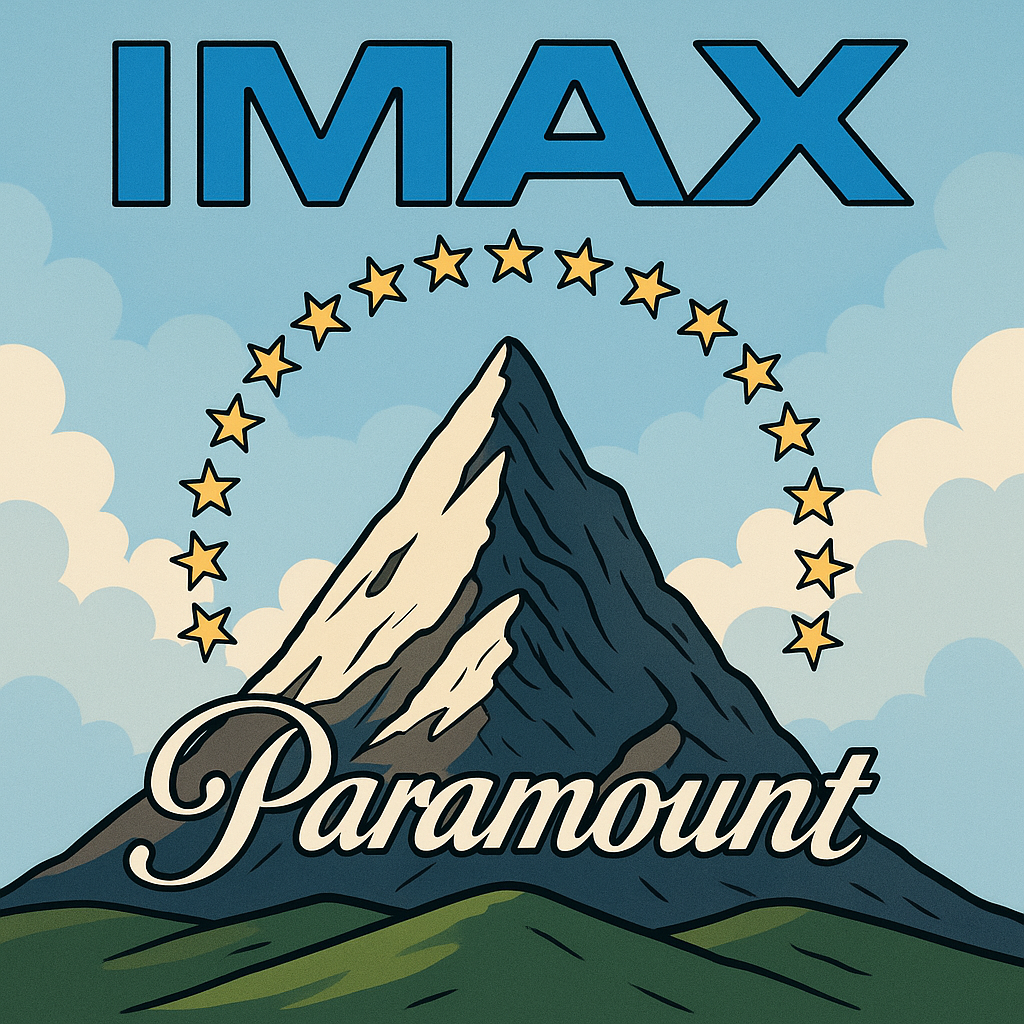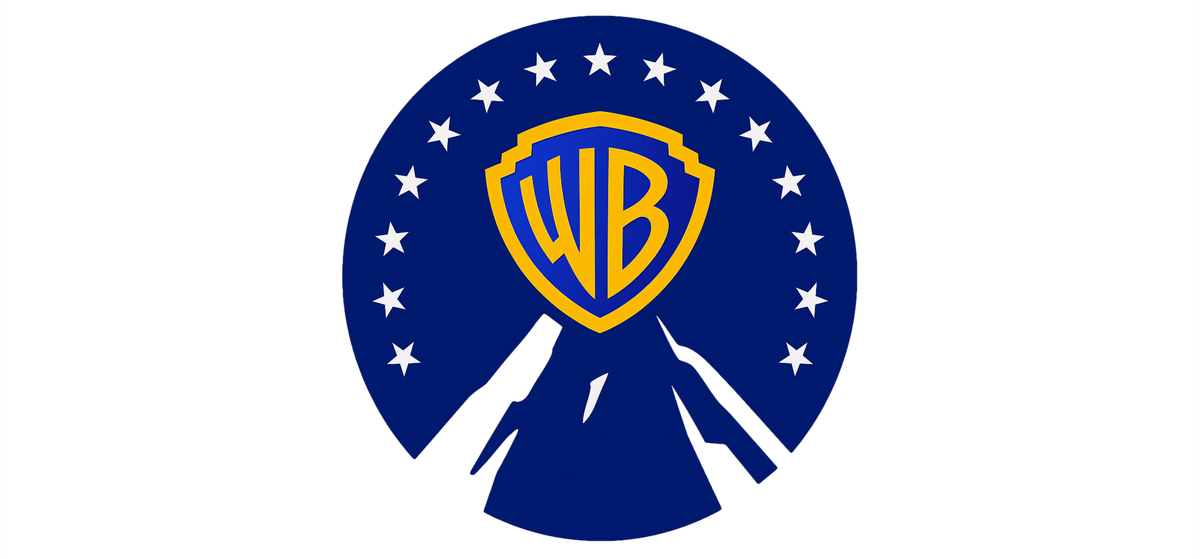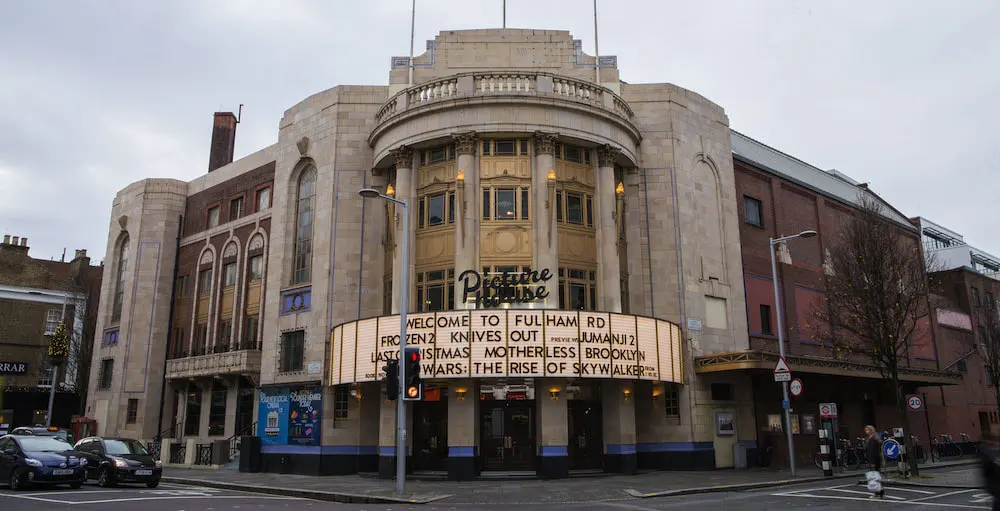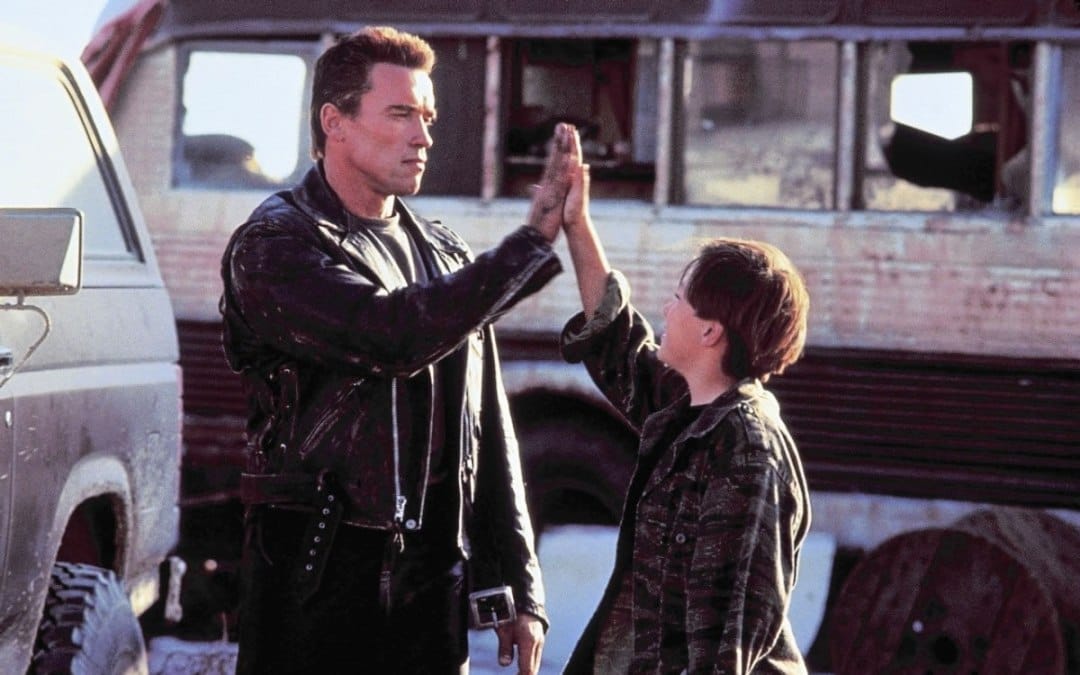How to Scale Paramount

"And so I just would caution people that think they’re going to walk in here and just and do these. We’ve struggled for a few years here, figuring out how to make a decent phone. The PC guys are not going to just, you know, knock this out. I guarantee it."
That was then-Palm CEO Ed Colligan when asked about the prospect of the tech companies potentially entering the mobile phone arena.1 The year was 2006. The iPhone was not yet even announced, let alone launched. But rumors were swirling about Apple working on an "iPod Phone"...
As it turned out, they knocked it out. Of the park.
For some reason my mind went to this quote while listening to an interview Skydance CEO David Ellison did with Matt Belloni earlier this week for his podcast, The Town, which covers Hollywood. Ellison and RedBird Capital head Gerry Cardinale were guests on the show to talk about their deal to acquire National Amusements, and in turn, Paramount. The interview was interesting, but less so in what they explicitly said – as it turns out, when you're in the midst of acquiring a company, especially one likely to draw regulatory scrutiny, you can't say much outside of some very specific guardrails – and more in the way they responded to the questions and the overall vibe of the chat.
That is to say, they sounded fairly defensive. And you might expect that given that this deal became sort of a laughing stock after failing to get done multiple times and playing out in the press over many months. But Belloni also gave a lot of pushback against the canned answers for why this deal makes sense. And only then did we start to get somewhere. Notably, Ellison name-dropped both Pixar and NeXT as a way to frame how they're thinking about the deal. Those are two famous examples of a situation where a company was acquired and was able to rewire the DNA of the larger entity. In the case of Pixar, they were brought under Disney's wing and helped revitalize an ailing animation studio. In the case of NeXT, Apple acquired the company and was able to use the technology brought over to build what would become OS X (now called macOS) and that, in turn, would become iOS. The foundation of the iPhone.
Oh, and both acquired companies happened to be run by Steve Jobs.
That fact was obviously more important in the Apple deal, as it brought him back to the company he co-founded and eventually put him back in place as the CEO. With Disney, he became the largest shareholder and joined the board, becoming a key confidant to Disney CEO Bob Iger, who would go on a hell of a run with acquisitions from there...
Anyway, Steve Jobs aside – and obviously Ellison was bringing him up as he was a close family friend thanks to his relationship with Oracle founder (and David's father) Larry Ellison – I do think those are interesting analogies here. In this case, Paramount is the larger company even though it's the one being acquired. And so Skydance would be the Pixar/NeXT in this scenario. And again, Ellison brought them up because they were cases were newfangled companies were able to renew the older iconic companies. And they did that primarily thanks to technology and culture.
Belloni, like everyone in the world, seems highly skeptical that Skydance can actually do much to change the fortunes of Paramount. It's a complex collection of businesses, almost all of which are operating within industries that are in some state of decline or decay or both or worse. Are the PC guys, you know, just going to knock this out?
Well, first and foremost, while Ellison's father may be a PC guy (sort of – close enough), Ellison himself seems more interesting as someone who grew up in tech but has done the legwork to build a successful movie house in its own right. Yes, it helps to have a parent who is one of the richest people in the world – and it certainly helped with this deal in particular – but it feels a bit less like a "nepo baby" situation and more like a guy who was really passionate about something and wanted to make a name for himself outside of his father's shadow. And if he hasn't fully done that, he's now closer than anyone undoubtedly would have thought when he launched Skydance coming off of a quickly aborted acting career.
I bring all this up because I think there might actually be a path to do something interesting here. Yes, per above, everyone tries to come in and revitalize old movie studios. But most of the time that has been giant conglomerates who just want "synergies". Jason Kilar was probably the most interesting counter-example in recent years, though he obviously didn't own his studio, Warner Bros., outright. And as such, he ultimately paid the iron price at the hands of AT&T.
No one is going to chop off David Ellison's head – er, cut him down at the knees. So with such power, and assuming this deal closes – still a not insignificant assumption given everything to date – what can and what should he do here?
I have a few ideas. And while I've worked in tech for 20 years, before that, I dabbled in Hollywood for a time. Doing things such as getting producers on B-movie sets coffee. So clearly I'm qualified to give such advice.2
First, unfortunately, they need to cut Paramount down to the bone. I say unfortunately because it means a lot of people losing their jobs. But that was already going to happen, so I'm not actually calling on anyone to be fired. At the same time, the reality is that all of the movie studios (and their tangential entities) are entirely too bloated. Again, I saw a sliver of this working a few different low-level Hollywood jobs years ago. If it's not the most inefficient industry in the world, it must be close. So much excess can be cut out with minimal work.
Of course you can't cut everything. Some of that excess is what gives Hollywood an allure. Movie stars spending too much money on silly things, for example. Still, a lot of it can be and should be cut. Imagine this: a Hollywood company that is run efficiently. This is something Ellison, with his tech pedigree mixed with the Hollywood clout can bring to the table.
Once you've cut the company down to size, you build it back up in new and hopefully interesting ways. For my whole spiel about efficiency, one of the realities of the current state of play is that there's a major game of musical chairs going on right now with every streaming player trying to figure out if they'll get a seat when the music stops. This includes both Hollywood and Big Tech. Netflix and Disney have seats locked in. Everyone else is sort of up in the air. Amazon and Apple will just buy new seats if they don't get one. But even Comcast needs to find that seat. And, of course, Warner Bros Discovery.
There's been a lot of talk amidst the Paramount dealings that WBD might be a good home/partner. What if, once the Skydance/Paramount deal is closed, they actually buy WBD? Yes, there are debt issues, but a year from now, hopefully WBD head David Zaslav will have a better answer and path there. Ellison has spoken a few times about Paramount+ in particular. Most assume they'll either spin it off or merge it with another player, like WBD's Max or Comcast's Peacock. And perhaps they will. But again, I'm not sure they shouldn't just buy all of WBD to bulk up into one of the major players themselves.
While it's not clear how the branding of all of this will shake out (the obvious guess would be the old standard combination to form 'Skydance Paramount') I think it's worth considering keeping 'Skydance' as the overall parent company, the new conglomerate in my vision. 'Paramount' shifts back into being the movie studio under Skydance. And I'd scrap the name 'Paramount+' which, while I appreciate the alliteration, feels too generic and wannabe. I'd rename it. Wait for it.
Yes, Skydance will own that brand as well with this deal. And while Paramount tried like hell to make a mockery of the old brand by rolling out 'Paramount+ with Showtime', 'Showtime' is just a great and obvious name. That's your new streaming service right there. It houses Paramount movies. Warner Bros movies. Discovery shows (under CNN, Food Network, etc). CBS content. HBO content.3 Skydance-produced content. And a few other things from the various roll-ups.
One of those is Nickelodeon, which Ellison has also spoken about directly. He seems excited to use that brand to bolster what Skydance has been doing with their animation arm under John Lasseter. Yes, he of Pixar fame. Assuming all is well with him (there have been varying reports otherwise), Skydance is likely to be a formidable player in animation. Adding Nickelodeon into that mix will only help.
MTV is less clear. It was obviously once an absolute powerhouse in cable television. But a combination of time, mismanagement, and YouTube have all but killed it. Maybe there's something still to be done with it, but undoubtedly not in music videos, at least not as the main element. A full-on focus on reality TV? A sub-brand of Discovery? Or maybe you sell it off, which is what they're gearing up to do with BET.
Here's another idea. It's easy to forget now, but when Skydance was still mainly focused on mediocre popcorn fare, Ellison sister, Megan, was rolling out great movies and racking up awards at Annapurna Pictures. Yes, his sister also strayed from the family business to Hollywood. And yes, she found success too with Oscar-nominated films like Zero Dark Thirty, American Hustle, Phantom Thread, and Silicon Valley's favorite (but really, my favorite) Her.
Annapurna has had some financial issues over the years. But Larry Ellison has also been there to help. And now Megan Ellison appears to be on the comeback trail – at least if big profiles in the trades are to be believed (which they're perhaps not, but still). While it's undoubtedly unfair to suggest that Megan Ellison sell Annapurna to the new Skydance conglomerate in bulk-up mode, I don't think it's that crazy of an idea. Annapurna can be the indie arm of Skydance. In a world where rival A24 is valued at $3.5B, there's value in this.4
Next, Skydance follows the recent Sony move and buys up an ailing cinema chain. Ideally not AMC, but perhaps they can pick off some of their best theaters when that house of meme-tastic cards eventually folds. Or Regal. Or iPix. Ideally something more national that they can add to the odd um, National Amusements mix of regional theaters in the US that Paramount has owned (or really, has owned Paramount!). There will be a lot of options here. And while this sounds crazy because those are famously horrible businesses in the 21st century, I believe there's a way to do them correctly.
And to evoke Apple once again, there's potential power in owning the entire stack from production to distribution. The Paramount Decree ended this practice 75 years ago. Now the gates are open again. And who better to step through them than yes, Paramount?
Lastly, while none of the above actually has anything to do with tech, there are undoubtedly ways to utilize and leverage technology to underpin all of these operations. The entire industry is currently cowering in fear about AI. That needs to be flipped on its head and actually leveraged to help creatives create. There needs to be leadership here to show the way within Hollywood. Just as Pixar did with digital animation. Skydance can do this, and bonus points if they can pull it off with only a few dozen 'Skynet' headlines as everyone is dragged kicking and screaming into the future.
Oracle can and will help with all of this, but it has to go beyond that too. 'Showtime' needs to be not just an okay service, it needs to be the best service from a technical perspective. It needs to out Netflix, Netflix – the opposite of what has been the case thus far. It's not just the catch-basin for content that doesn't go to theaters, it's a first-class experience alongside your new movie palaces.
Speaking of, yes there's a risk of alienating talent with such moves. But that's why it's also great that you just bought those movie theaters. Will anyone be happier than your partner in Top Gun, Tom Cruise?5 The old, 'one for them, one for us'.
If you close your eyes, you can almost see the above. A world in which Skydance both joins the ranks of the OG power players along network lines – Disney with ABC, Comcast with NBC, Skydance with CBS – but also the new school players in Netflix, Amazon, and Apple. The bridge between the two worlds. Two words. Mission: Possible.
Update August 14, 2025: With the deal now finally closed, a new, tangential idea...

Update September 11, 2025: Well would you look at that. A report that Paramount Skydance is working on a bid to buy Warner Bros Discovery...




1 And actually the quote has often been cited as: "PC guys are not going to just figure this out. They’re not going to just walk in." It is a great quote and similar, but it was misquoted, apparently.
2 To be fair, I've had some good ideas and takes in the past on tangential topics, if I do say so myself.
3 Yes, it would be weird to have the HBO brand under the Showtime brand, given their years of rivalry. But times change, and AT&T already basically muted the HBO brand, while WBD just piled on top of with Max.
4 You know who else might appreciate such an expansion and making it more a family business? Shari Redstone.
5 Maybe a certain former spouse of Tom Cruise if you buy up those AMC theaters?



